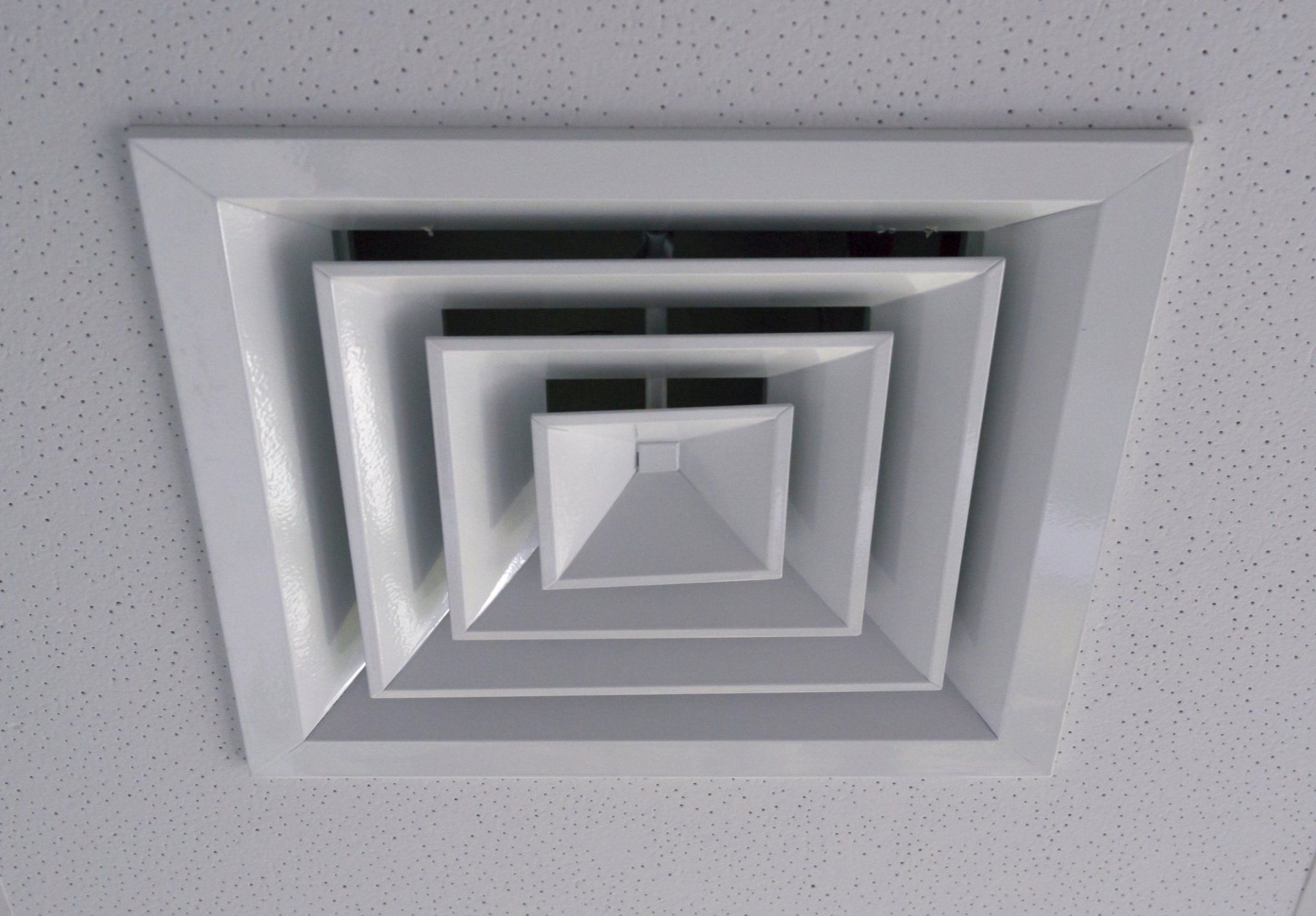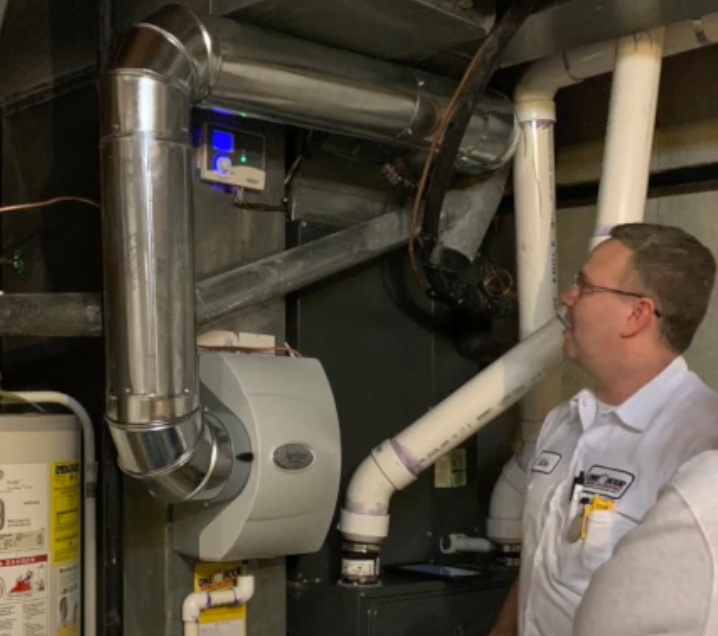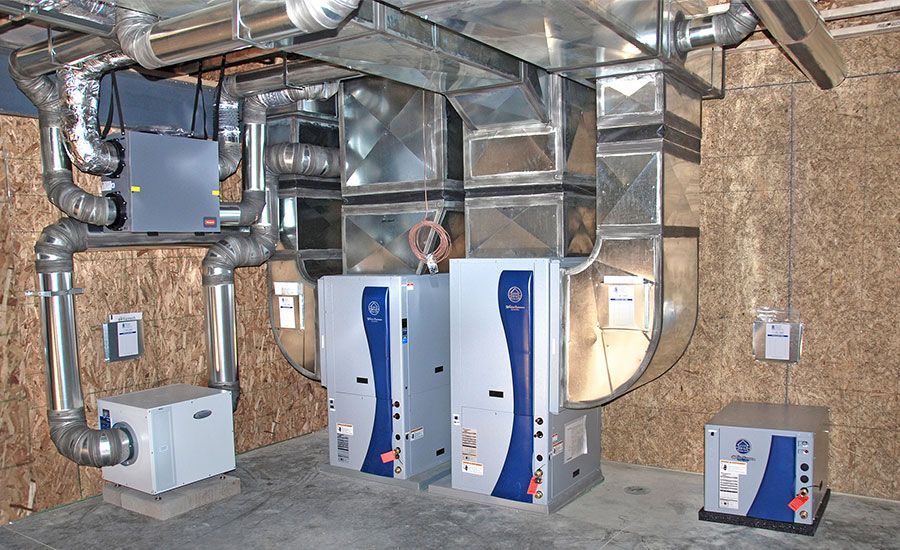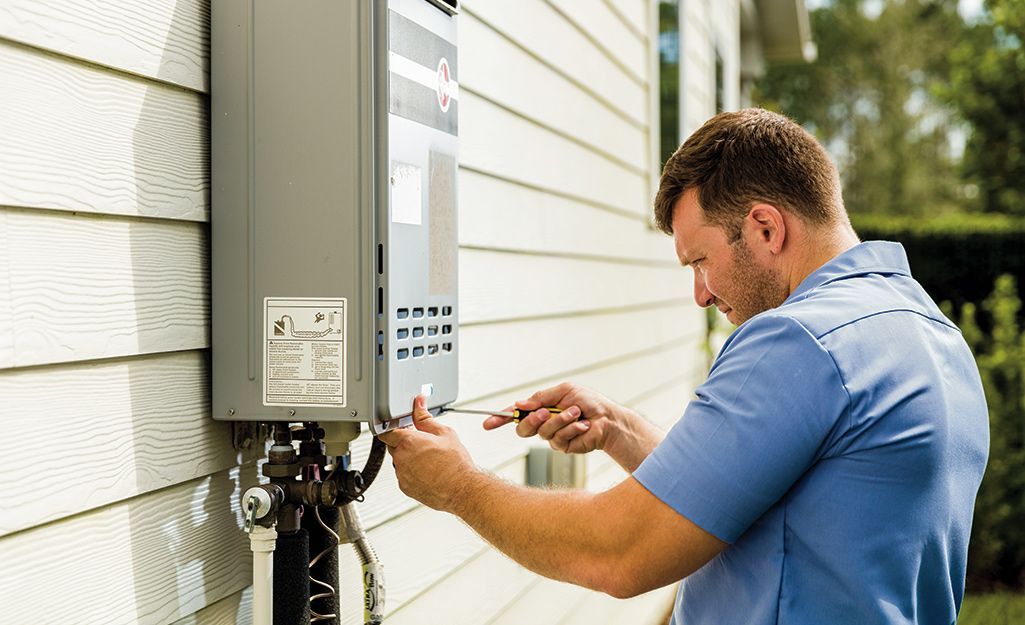Home Ventilation Tips: 5 Signs You Need a Dehumidifier
Does your home need a dehumidifier? Would you know if it did?
Excess moisture in the air can cause structural problems for your house, and health problems for the people living in it. Knowing when to install a dehumidifier can help you take care of your property and loved ones.
There are many tell-tale signs that a dehumidifier is needed in your home. Knowing those signs, and how to
get a dehumidifier installed can help you take care of your property.

1. Mold on Walls, Ceilings
In the right environment, moisture leads to mold. When the air in your home is too humid on a regular basis, mold can grow easily on dry wall, plaster, wood and on other building materials. You should never see mold or mildew on the walls or ceilings of your home, and if you do, that could be a sign that the humidity in your home is too high.
What does mold look like? Usually, mold grows in spots that are clustered together. Mold can be black, gray, brown and other colors. You'll often see mold around water-damaged areas of your home, and in areas with poor air flow.
2. Water Stains
Water stains are another sign of high humidity, especially if the stains are found clustered in parts of your house where drops from condensation may have gathered. It's important to note here that not all water stains are a sign of high humidity. In fact, many water stains are a sign of roof leaks, plumbing leaks, water heater leaks, and more.
If you notice water stains in your home, pay careful attention to where those stains are. If they're focused on a corner of your ceiling, or a spot on the wall in the bathroom, there's a good chance that the water stains in your home are a result of a problem other than humidity.
3. Condensation on Windows
Condensation forms when warm, humid air meets a cold surface. This is why condensation forms on your ice-cold drinking glasses in the summer. When condensation forms on the inside of your windows at home, this means that the air in your home has enough moisture in it to support the formation of condensation.
You'll most often notice the formation of condensation in parts of your home where the humidity is highest. For example, you'll see condensation on windows in the bathroom when the shower is running, or in the kitchen when you're boiling water. If you're seeing condensation on other windows in other parts of the home, this could be a sign that the humidity in your home is very high indeed.
4. Excess Dampness Around Your Home
Often, humidity in the home comes from the dampness in the ground around the house. If you're seeing excessive dampness in the ground around your house (pooling water, for example), then this could be a sign that your home will also have high humidity. This is especially true if your basement regularly floods, or if your crawl space also has standing water.
5. Musty Odors
When you walk into your home, do you notice musty odors - especially in parts of your house where the humidity is often highest? The musty odors come from mold growth, which is likely occurring because of high humidity. Don't ignore these odors! Mold growth can be dangerous - especially for people who have respiratory trouble, asthma and other conditions. Get this problem taken care of!
What's an Appropriate Humidity?
When we talk about high humidity, what do we mean? A healthy humidity for your home is between 30% and 50%. If the humidity in your home is higher than this, it's time to take action to reduce your home's humidity.
To find out what your home's humidity is, buy a hygrometer or an indoor humidity monitor. If possible, get multiple hygrometers to measure the temperature and humidity in various parts of your house.
How to Get a Whole-Home Dehumidifier Installed
Talk to your HVAC professional to get a whole-home dehumidifier installed. When you're vetting HVAC contractors, here's what to look for:
- Experience. Know how much experience your HVAC professional has before hiring them to install a whole-home dehumidifier. Long-standing businesses are best because they should have the most experience ensuring that each job goes well for the customer.
- References. Contact at least three references before signing the contract to install the humidifier. Ideally, get at least one reference from another customer that had a humidifier installed.
- Good reviews. If the business is well-established, they should have online reviews for you to look at. Look for good reviews and bad ones, to see if there are patterns of behavior.
What Else You Can Do to Dehumidify Your Home
In addition to the installation of a whole-home dehumidifier, there are many things you can do to reduce the humidity in your home.
Improve ventilation. Improve air flow in your home by ensuring that all vents and ventilation systems are operational.
Repair HVAC system. Your home's HVAC system, especially the air conditioner, can help dehumidify your home while the system is running. If your AC is broken get it fixed now!
Fix leaks. Leaks like plumbing leaks and roof leaks allow excess moisture into your home. Get these problems fixed as soon as possible.
Remove plants. Plants need regular watering, which adds to the humidity in your home. If you have a lot of houseplants, consider spreading them around more to control the humidity, or get rid of houseplants you no longer need.
Run vents when cooking, showering. The rooms of your home with the highest levels of humidity, namely the bathrooms and kitchen, should have vents that you can turn on when they're needed. Run vents in your bathroom and kitchen when you're engaging in activities that put a lot of moisture in the air, like bathing, showering, boiling water and cooking.
Take shorter showers. Long showers are a big contributor of moisture in the air. You can control that moisture by taking shorter showers. If other members of your family are also known for taking shorter showers, talk to them about limiting their shower time. Doing this will reduce humidity in your home and also save money on your utility bills.
Need a Whole-Home Dehumidifier?
Cal the experts in HVAC repair and installation to get a whole-home dehumidifier installed in your HVAC system. Doing this can reduce humidity in your home, improve your home's value and improve your quality of life.
Homeowner Looking For Reliable Heating, Cooling Or Plumbing Supplies?
Our dedicated specialists are standing by to help.
Most homeowners in need of new heating or cooling equipment will do an internet search to get information. Such a search will typically yield two results: what to buy or where to buy but not why to buy. At InterCounty Supply, as a wholesale supply house, we present all the options for what to buy and why it would be the best choice for YOUR situation. After all the options are presented a homeowner can decide for themselves what they need. ICS then has a licensed, factory trained contractor who SPECIALIZES in the equipment you need come to your home to provide the complete installation cost for the equipment you need. ICS will also handle all the paperwork for any rebates that are applicable.
Have questions, give us a call 914-939-4350 or fill out the form and one of our specialists will be in touch shortly.
Get A Free - No Obligation Quote
Our Specialist are
standing by to help
Blog Post Form
We will get back to you as soon as possible
Please try again later
Other Helpful Articles
Homeowner Looking For Reliable Heating, Cooling Or Plumbing Supplies?
Our dedicated specialists are standing by to help.
Quick Links
Sign Up For Our News Blast
Email Newsletter
Thank you for subscribing to our updates. We will never spam or resell your information.
Please try again later.
Latest News
All Rights Reserved. All content & images belong to their respectful owners. | InterCounty Supply Inc.
Powered by Zamerat Digital Marketing




